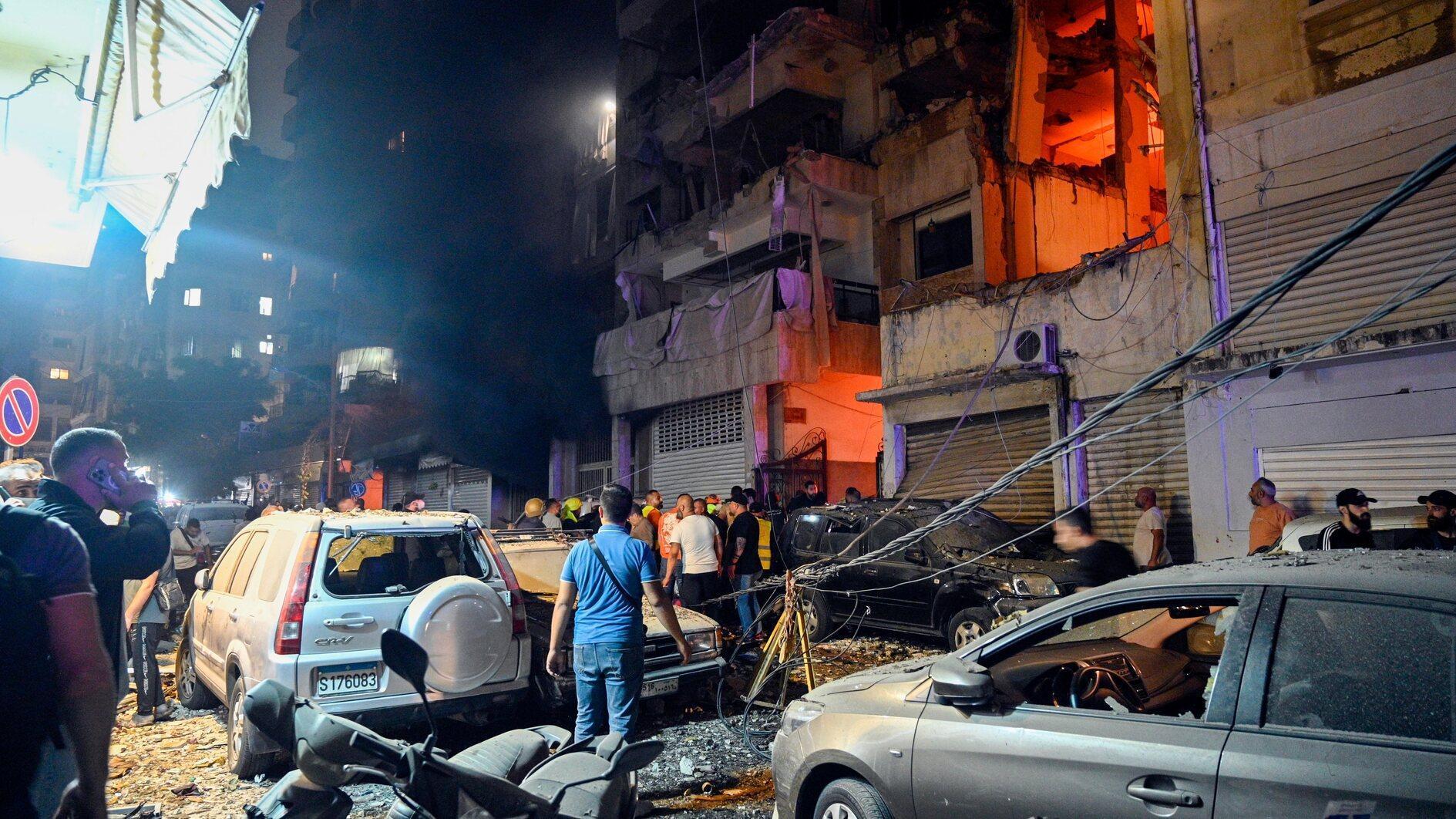Israeli strike kills 22 in central Beirut
BEIRUT

An Israeli air strike killed at least 22 people in central Beirut on Thursday as Israeli ground troops in Lebanon were accused of firing on the U.N.'s peacekeeping headquarters, injuring two Blue Helmets.
The raid on Beirut was the third such attack on the center of the Lebanese capital since Israel escalated its campaign last month.
Lebanon's health ministry issued the updated death toll and said the number of injured had risen to 117.
A Lebanese security source, without giving further details, said a "Hezbollah figure" was targeted after a series of killings of top officials in the Iran-backed movement.
Most Israeli strikes have targeted the south Beirut area, not the city's center.
The attack came the same day the U.N.'s peacekeeping force in Lebanon accused Israeli soldiers of "repeatedly" firing on its positions, including with a tank, leaving two Indonesian soldiers with injuries.
EU chief Charles Michel said on Friday that "an attack against a U.N. peace mission is not responsible, is not acceptable," after Italy and Spain both slammed the attack.
Washington said that while Israel targets Hezbollah facilities "it is critical that they not threaten U.N. peacekeepers' safety and security."
The Israeli military said it had been operating against Hezbollah militants near UNIFIL headquarters and had "instructed the U.N. forces in the area to remain in protected spaces."
Israel has been pounding Hezbollah in Lebanon since Sept. 23 in an escalated campaign that has killed more than 1,200 people and displaced more than a million others, according to health ministry figures.
Its ground forces crossed into Lebanon on Sept. 30 with the aim of stopping Hezbollah's cross-border fire in support of Palestinian militant group Hamas, which attacked Israel on Oct. 7.
Hezbollah missile and artillery fire have forced tens of thousands of Israelis to flee their homes near the border over the past year, and Israeli Prime Minister Benjamin Netanyahu has promised to fight until they can return.
Humanitarian law
The Lebanon operation is a second front for Israel's stretched armed forces, which are continuing their campaign against Hamas Palestinian militants in Gaza.
Israeli forces launched a major operation in the north of the territory over the weekend around the Jabalia refugee camp, where about 400,000 people are trapped, according to Philippe Lazzarini, head of the U.N. agency for Palestinian refugees, UNRWA.
Speaking to reporters on Wednesday about the humanitarian situation, US State Department spokesman Matthew Miller said that Washington was "incredibly concerned" as Israel tightens its siege.
"We have been making clear to the government of Israel that they have an obligation under international humanitarian law to allow food and water and other needed humanitarian assistance to make it into all parts of Gaza," he said.
An Israeli strike on a school building being used as shelter by displaced people in Deir el-Balah in central Gaza on Thursday left at least 28 people dead and 54 injured, according to the Palestine Red Crescent.
It is the latest of numerous such incidents.
The Israeli army said in a statement that the strike targeted Palestinian combatants operating from a command-and-control center "embedded inside a compound that previously served as the (Rafida) School."
The Israeli military accuses Hamas of hiding in school buildings where thousands of Gazans have sought shelter—a charge denied by the militant group.
U.N. investigators on Thursday also accused Israel of deliberately targeting health facilities and killing and torturing medical personnel in Gaza.
Israel is "committing war crimes and the crime against humanity of extermination with relentless and deliberate attacks on medical personnel and facilities," the U.N. Independent International Commission of Inquiry said in a statement.
'Deadly, precise'
Ahead of Yom Kippur starting on Friday, the holiest day in the Jewish calendar, Israelis are also braced for the country's reaction to a missile attack last week from Iran, which backs both Hamas and Hezbollah.
Iran fired about 200 missiles in what it said was retaliation for the assassination of two of its closest allies, Hezbollah leader Hassan Nasrallah and Hamas leader Ismail Haniyeh, along with an Iranian general.
Iranian Foreign Minister Abbas Araghchi said in an interview with Al Jazeera Arabic on Thursday that "we do not want a war," but "we are not afraid of it, and we will be ready for any scenario."
Israel's Defense Minister Yoav Gallant said Wednesday that "our attack on Iran will be deadly, precise, and surprising. They will not understand what happened and how it happened."
Biden has cautioned Israel against attempting to target Iran's nuclear facilities and opposes striking oil installations.
"I don't think we are currently in a situation that the two countries are seeking an all-out direct war," Hamid, a 29-year-old university student in Tehran, told AFP on Thursday.
"It will have severe economic and military consequences" for both countries," he added.
















